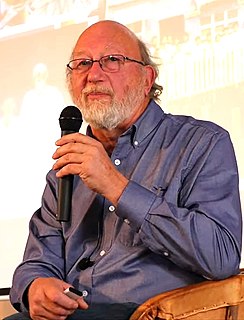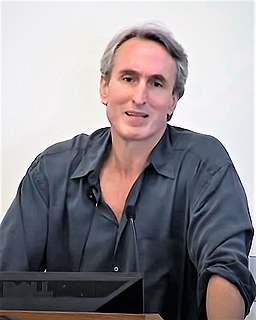A Quote by Richard Dawkins
Certainly science should continue to see whether we can find evidence for multiverses that might explain why our own universe seems to be so finely tuned.
Related Quotes
Science may explain the world, but we still have to explain science. The laws which enable the universe to come into being spontaneously seem themselves to be the product of exceedingly ingenious design. If physics is the product of design, the universe must have a purpose, and the evidence of modern physics suggests strongly to me that the purpose includes us
Rather than seeing ourselves as insignificant specks in the immensity of the cosmos, we can consider that immensity an indicator of our worth. It seems the Creator invested a great deal-a universe of 50 billion trillion stars, plus a hundred times more matter, all fine-tuned to mind-boggling precision-for us. If not for the strength and abundance of evidence in support of that notion, it would seem the height of arrogance. Humility demands that we take a deeper and wider look at that evidence.
If we wish to draw philosophical conclusions about our own existence, our significance, and the significance of the universe itself, our conclusions should be based on empirical knowledge. A truly open mind means forcing our imaginations to conform to the evidence of reality, and not vice versa, whether or not we like the implications.
Think for yourself, and believe in yourself. Keep your skeptical antennae tuned in and in good working order at all times. We are free to develop our own hypotheses, which should be based in available evidence. When it comes to faith, have faith in yourself. And don't forget to love, laugh, be kind to each other. Don't take things so seriously, especially yourself. If the universe is a cosmic joke, remember to giggle. And remember to be astonished.
Some physicists solve that problem of the necessity of finely tuned physical constants ... by invoking the anthropic principle, saying, well, here we are, we exist, we have to be in the kind of universe capable of giving rise to us. That in itself is, I think, unsatisfying, and as John Lennox rightly says, some physicists solve that by the multiverse idea-the idea that our universe is just one of many universes.
What sets science and the law apart from religion is that nothing is expected to be taken on faith. We're encouraged to ask whether the evidence actually supports what we're being told - or what we grew up believing - and we're allowed to ask whether we're hearing all the evidence or just some small prejudicial part of it. If our beliefs aren't supported by the evidence, then we're encouraged to alter our beliefs.


































